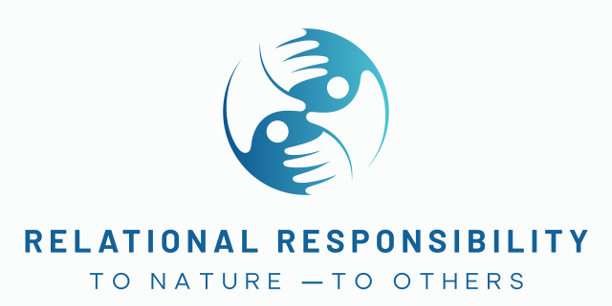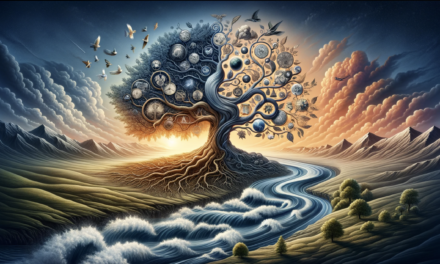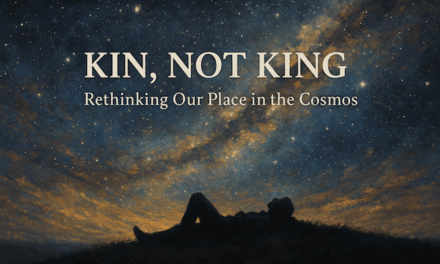1. The Crisis We Face
Humanity stands at a crossroads. We are witnessing planetary destabilisation—climate breakdown, ecological collapse, resource depletion—while simultaneously experiencing deepening social fragmentation—polarisation, inequality, loss of trust in institutions. These crises are often treated as separate, but they stem from a common root: the severance of relationality.
For centuries, we have been conditioned to see ourselves as isolated individuals—rational actors maximising self-interest in an economic, political, and technological system built on competition and extraction. We have constructed societies that prioritise autonomy over interdependence, growth over balance, and power over stewardship. In doing so, we have disrupted the very systems that sustain us, both socially and ecologically.
2. The Missing Foundation: Relational Responsibility
The Enlightenment gave us many gifts—science, democracy, human rights—but it also embedded a distorted view of individualism. What was once a necessary liberation from oppressive structures became, over time, an ideology of separation: humans from nature, individuals from community, mind from body, economy from ecology.
This is a fundamental misunderstanding of reality. Life is relational. Everything—our biology, our societies, our economies—exists in interdependent systems. There is no isolated self, no purely independent success. Flourishing is only possible within a web of mutual support and responsibility.
3. The Principle of Relational Responsibility
A new paradigm must emerge, one grounded in the principle of Relational Responsibility:
- Individuals must recognise their embeddedness. Every choice, action, and belief has an impact on the wider social and ecological systems we inhabit.
- Leaders bear a heightened duty. Those with influence—whether in business, government, community, education, or science—must shift from extractive to regenerative models, from competition to collaboration, from control to stewardship.
- Societies must redesign their systems. Governance, economics, and education must be reoriented to reflect the reality of interdependence, ensuring that all structures reinforce, rather than undermine, relational integrity.
4. The Path Forward
We do not need a utopian vision. Practical steps can be taken today:
- Reimagining success: Moving beyond GDP and shareholder value to metrics that prioritise well-being, community cohesion, and ecological balance.
- Embedding relational education: Teaching the next generation to see themselves not as isolated individuals but as participants in a shared, living system.
- Reforming governance: Shifting from transactional, vote-counting democracy to deliberative, participatory, and community-driven decision-making.
- Redesigning economies: Transitioning from extractive capitalism to regenerative, circular, and cooperative economic models.
- Holding leadership accountable: Expecting and demanding that leaders act with long-term relational responsibility, not short-term personal or corporate gain.
5. The Call to Action
We are not powerless. Every individual, every community, and every leader has a role to play in shifting from a world of fragmentation to one of connection. The task ahead is not merely technical or political—it is existential.
The story of humanity is not yet finished. We must choose whether we continue down a path of isolated self-interest or embrace our role as stewards of a shared future. Relational responsibility is not an option—it is the only viable foundation for human and planetary flourishing.
Terry Cooke-Davies
3rd February 2025
Profound thanks to ChatGPT(4o) from OpenAI for assistance with this article.






